10 Of The Most Idiotic Quotes From Liberal Hero Franklin D. Roosevelt
1. “There seems to be no question that [Mussolini] is really interested in what we are doing and I am much interested and deeply impressed by what he has accomplished and by his evidenced honest purpose of restoring Italy.”
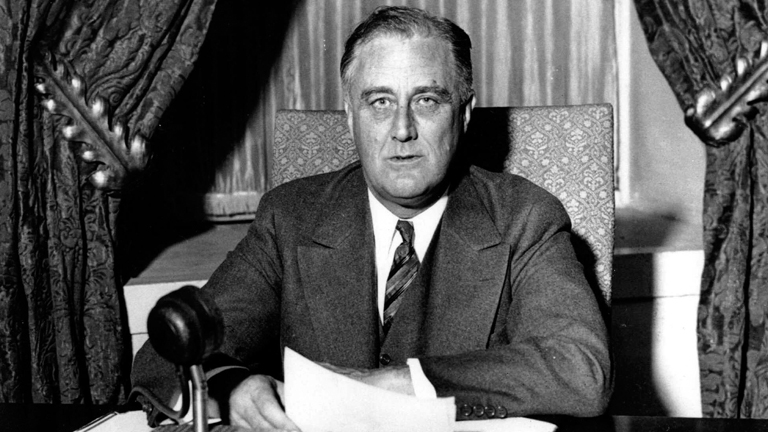
This comment was made by Roosevelt in early 1933. It is hard to tell if he was simply being ignorant of Mussolini’s track record or if he really did approve of his oppressive policies.
Benito Mussolini, Fascist leader of Italy from 1922 to 1943, is considered one of the most brutal leaders in recent world history. During his time as Prime Minister, he reduced the influence of the judiciary, stifled free press and arrested political opponents before eventually declaring himself dictator of Italy.
Mussolini then banned opposition parties, expelled over 100 members of parliament, enacted the death penalty for political crimes, increased the amount of secret police activities and abolished local elections. During World War II, Mussolini partnered with Adolf Hitler of Germany and Hideki Tojo of Japan to form the Axis Powers.
2. “I just have a hunch that Stalin is not that kind of man. Harry [Hopkins] says he’s not and that he doesn’t want anything except security for his own country, and I think that if I give him everything I possibly can and ask nothing from him in return, noblesse oblige, he won’t try to annex anything and will work with me for a world of democracy and peace.”
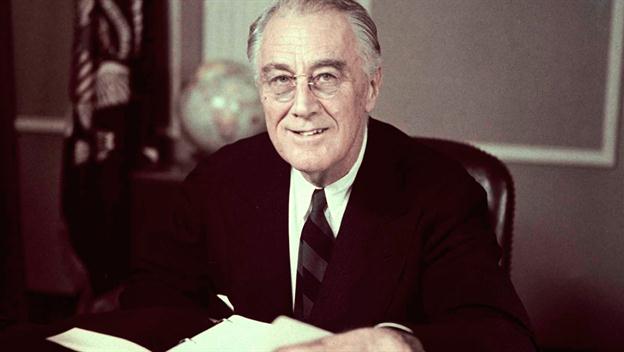
Roosevelt also apparently underestimated, and was somewhat sympathetic toward Joseph Stalin. This quote, made in response to proposed containment against the Soviet Union in 1943, shows that Roosevelt thought quite highly of Stalin’s motives and was nearly oblivious to his wicked intentions.
Yet another brutal dictator, Stalin’s aggressive actions in Europe following World War II would lead to the Soviet Union becoming the US’s biggest rival for the next 40 years. In addition to the 20 million Soviet troops and civilians who died during World War II, it is estimated that another 20 million people died as a direct result of Stalin during his time as ruler.
#3. “In my Inaugural I laid down the simple proposition that nobody is going to starve in this country. It seems to me to be equally plain that no business which depends for existence on paying less than living wages to its workers has any right to continue in this country.”

This quote from 1933 reveals just how little Roosevelt thought of private businesses and what they deemed to be necessary to survive. Despite economic realities, Roosevelt thought that every business should supply a “living wage,” and perhaps even more striking, that any businesses that do not (or cannot) supply such a wage have no right to exist. This populist exclamation shows complete economic illiteracy and neglects the many entry-level jobs which are never meant to serve such a purpose as granting a living. In fact, some jobs return to employers such a small amount that it would require that they go “into the red” in order to pay a living wage.
#4. “Great accumulations of wealth cannot be justified on the basis of personal and family security. In the last analysis such accumulations amount to the perpetuation of great and undesirable concentration of control in a relatively few individuals over the employment and welfare of many, many others.”
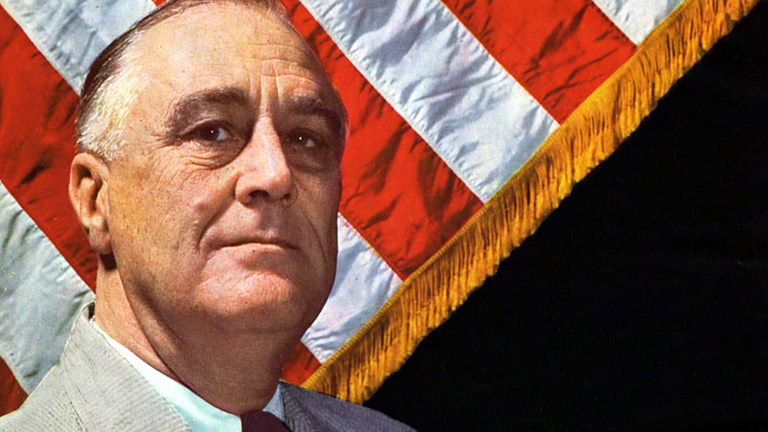
Once again, Roosevelt strikes a very socialist tone with his remarks. In this address to Congress in 1935, he decries the rich and wonders for what reason they need so much money, when it could instead be used by government for much more “benevolent” purposes. In the same address, Roosevelt would suggest that in addition to the estate tax, there should be inheritance, succession and legacy taxes, as well as gift taxes to avoid evasion. This kind of class warfare is familiar, as it is regularly spouted by modern-day liberals.
#5. “The liberty of a democracy is not safe if the people tolerate the growth of private power to a point where it becomes stronger than their democratic state itself. That, in its essence, is fascism – ownership of government by an individual, by a group.”
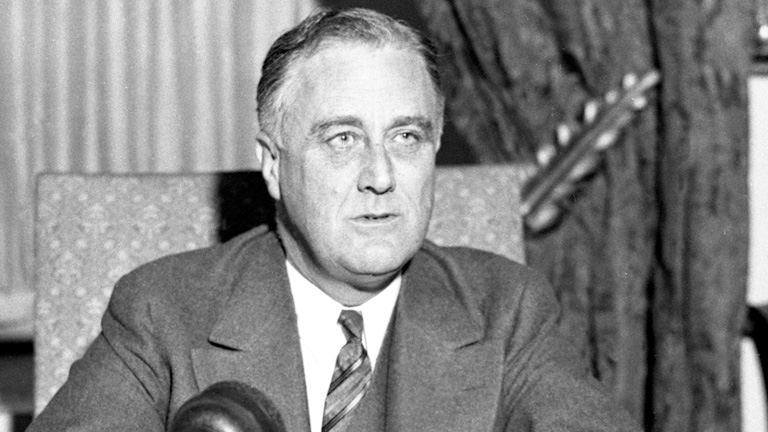
In this message to Congress in 1938, Roosevelt fear-mongers about a day when “private power” becomes stronger than government. Oddly enough, isn’t this the way which the Founders crafted the Republic? Isn’t government supposed to be beholden to private individuals, rather than the other way around?
Perhaps the most amazing part about this quote is its irony. Fascism is defined by dictionary.com as “a governmental system led by a dictator having complete power, forcibly suppressing opposition and criticism, regimenting all industry, commerce, etc., and emphasizing an aggressive nationalism and often racism.” This definition is eerily similar to the kind of government that was in place during FDR’s presidency.
#6. “Taxes, after all, are the dues that we pay for the privileges of membership in an organized society.”
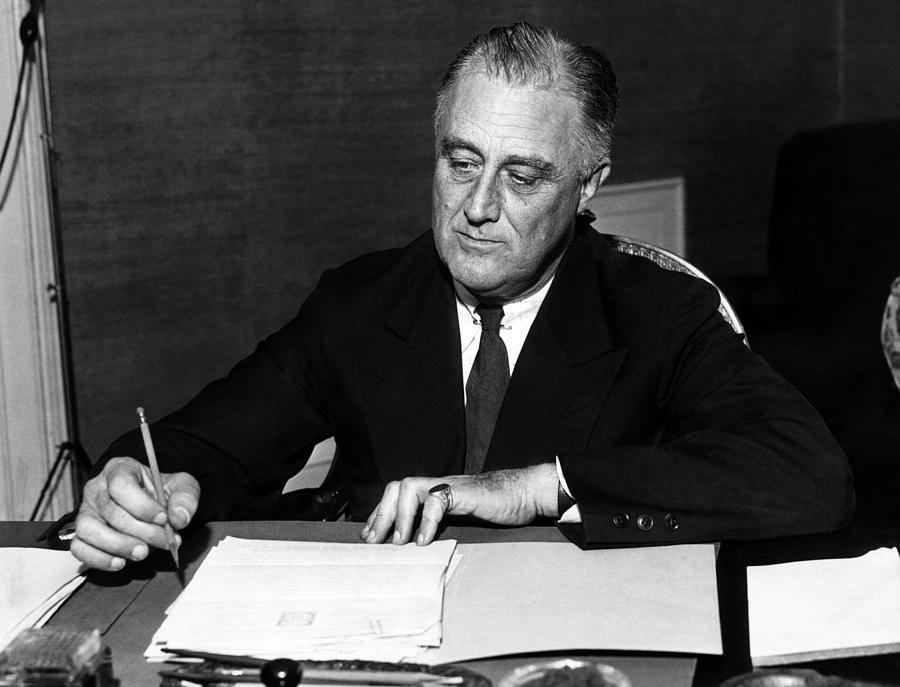
Paraphrasing from Supreme Court Justice Oliver Wendell Holmes in a 1936 address in Massachusetts, Roosevelt spouts one of the most common fallacies in modern liberal thought: that there is “greatness” and “patriotism” in taxation. This belief that we must pay burdensome taxes in order to maintain any sort of modern civilization is old and tired. The American Revolution was fought due to the strong attitudes against the burdens of taxation. To legitimize taxes as some sort of minor inconvenience and trivial infringement upon liberty, which is what is truly necessary to maintain order, is downright intellectually dishonest.
#7. “Not only our future economic soundness, but the very soundness of our democratic institutions depends on the determination of our government to give employment to idle men.”
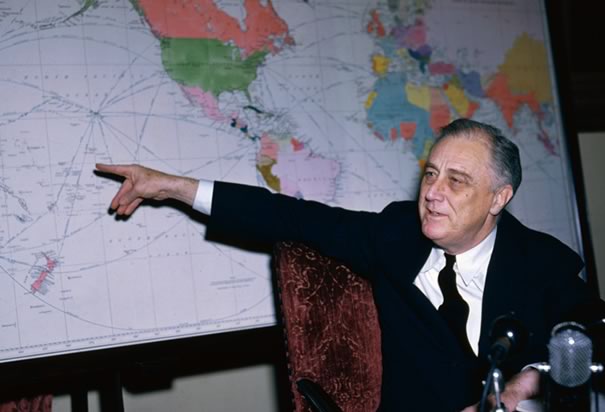
In this Fireside Chat from 1938, Roosevelt uses yet another liberal economic fallacy in rather dramatic fashion. Public works projects are some of the most popular government investments among the general public. However, their usefulness as a step toward economic improvement is a tenuous argument at best; the government must take more from taxpayers so that they may pay new public workers, whose jobs will provide only temporary employment. Public works were a central part of the New Deal, a program whose lack of success is well-documented. Furthermore, it is fair to say that “future economic soundness” and “our democratic institutions” depend on thousands of factors more important than inefficient government programs like public works; most notably overall liberty.
#8. “You issue an executive order here for your group of blacks, and the Poles are going to call for one, and you’re going to have this group and that group calling for one, and there’ll be no end to it. Now I’m willing to see to it that these jobs are opened up and I think that we can do that, but I can’t issue any executive order.”

As much as FDR cared for public works, such enthusiasm apparently didn’t translate when it came to disfavored groups. Roosevelt had long taken action to discourage protests by black Americans against discrimination, including Jim Crow laws in the South. He sent spies into the movement and wire-tapped their offices. When leader of the Brotherhood of Sleeping Car Porters A. Philip Randolph had his request for an end to discriminatory government policies rejected by Roosevelt, he threatened to stage a March on Washington. Wanting to prevent such action, Roosevelt was willing to negotiate. Randolph asked for an executive order guaranteeing black Americans jobs, to which Roosevelt responded with the insensitive quote above.
#9. “The only concession I might make to him (King Saud) is to give him the 6 million Jews we have in the United States.”

Roosevelt made this anti-Semitic statement during the February 1945 Yalta Conference with Soviet dictator Joseph Stalin and British Prime Minister Winston Churchill. Roosevelt was scheduled to meet with Arabian despot King Ibn Saud after the Conference, leading Stalin to ask Roosevelt what concessions he might make to Ibn Saud regarding the Middle East. This quote shows both Roosevelt’s ignorance and his complete disregard for the seriousness of the Holocaust (which was, after all, still occurring at the time).
#10. “I don’t care so much about the Italians, they are a lot of opera singers, but the Germans are different. They may be dangerous.”
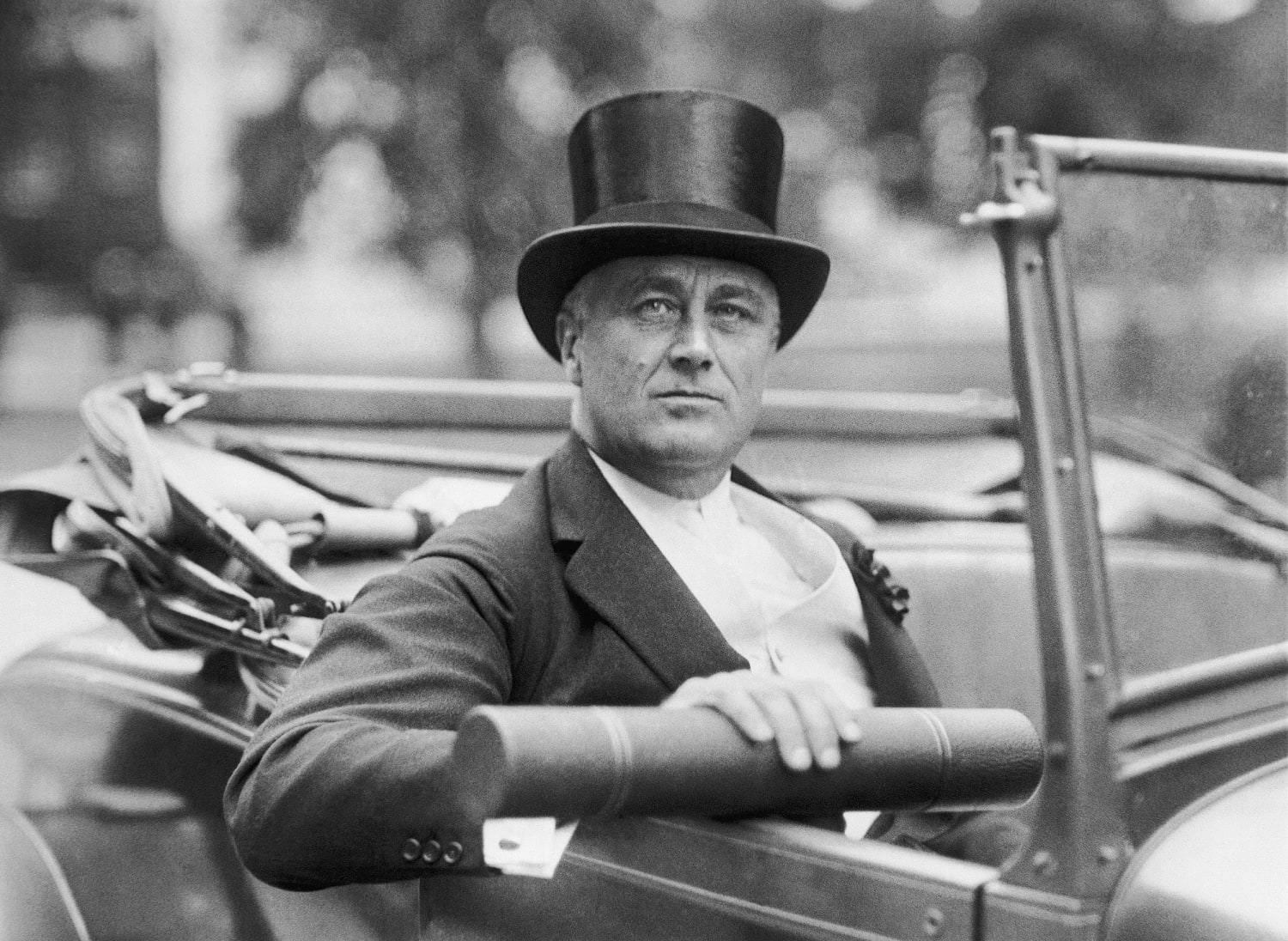 There is so much racism and absurdity contained in this one quote. While it may at first appear as a playful joke, the context makes this quote ever more dark and sadistic. Made in response to a plan to intern Germans and Italians living in the US (as was done with Japanese Americans), Roosevelt generalizes and stereotypes millions, without any apparent regard for the implications of what he is saying.
There is so much racism and absurdity contained in this one quote. While it may at first appear as a playful joke, the context makes this quote ever more dark and sadistic. Made in response to a plan to intern Germans and Italians living in the US (as was done with Japanese Americans), Roosevelt generalizes and stereotypes millions, without any apparent regard for the implications of what he is saying.

No comments:
Post a Comment